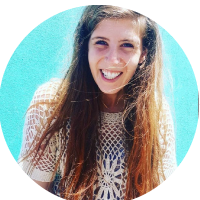
Global Human Rights Hub Fellows Blog
International development needs to redefine expertise
By Leah Goldmann
About two and a half years ago, I sat at a bar in Kampala, Uganda while a friend discussed his #ExportProductsNotPeople initiative, in which he planned to walk from Kampala to Addis Ababa, Ethiopia to promote African development by and for Africans. While speaking about his initiative to encourage African youth to stay on the continent, the audience of white people asked when trivia would start. I recognized some of those in the audience, who had attended health and development conferences to preach about the importance of local participation and community engagement.
At that moment, I started to grasp the ways I perpetuated the global development sector’s (neo)colonial, neoliberal roots. Since my entry into the industry, I have witnessed and engaged in countless incidents of racism and paternalistic interventions to “build capacity” and “empower” communities in the Global South, prioritizing Western ways of knowing and learning.
After graduating from an international public policy school, my peers and I were eager to “go to the field” (e.g., go to a country in the Global South) to “test” our newly honed development skills. In my first year abroad, I worked at the Ministry of Health in Uganda, training health workers on gender-based violence response, sexual harassment, and health and human rights. Despite having lived in the country for just six months, foreigners and nationals alike assumed that I had the requisite knowledge (merely based on my citizenship) to train Ugandan medical professionals with far more education and experience than myself. I became a caricature of the know-it-all foreigner trying to inculcate Ugandans.
In professional meetings, I was often the only white person in the room. I saw people turn their bodies to me when I spoke, overlooking my Ugandan colleagues, and automatically consider me a source of authority. As a recovering “white woman who constantly needs to interject,” I was taken aside by a supervisor and asked to take a step back in group conversations. This was essential in my (ongoing) journey to becoming co-conspirator— to continuously recognize how my presence can have a negative impact, no matter how many times I’ve shared #BLM posts on social media.
I see white people dominating leadership positions and accepting promotions without inquiry as to whether there were equally or more qualified non-white specialists, particularly from the communities in which they are working. Especially for white people who already hold numerous leadership and board positions, they somehow think it is a worthwhile strategy to hoard these positions in the same way that white people have historically hoarded wealth and power. What’s more, there are others who think that their whiteness and/or passport equips them with the qualifications to be a founder or CEO of an organization in the Global South. In the least harmful case, this redirects money to white people to pad their resumes at the expense of funding informed, intentional work, and in the more severe cases, leads to devastating outcomes, such as children dying because this woman pretended to be a doctor in Uganda and girls being subjected to sexual exploitation because a white woman in Liberia established a harmful organization.
In addition to the “single (white) visionary leader” narrative, large international organizations are embedded with racist, patriarchal, capitalist, and neoliberal practices: paying national and international staff disparate salaries, cultures of impunity, promoting “poverty porn,” exacerbating the climate crisis by flying in international “experts,” and depoliticizing local women’s movements, all while promoting “intersectional feminism.”
While preaching gender equality, the aid sector prioritizes white women’s “expertise” over that of Brown and Black women. They move US and European professionals around the world under the assumption that they can understand the political and social realities of any low- and middle-income country. They talk about “empowering” communities without analyzing the systems of oppression that have created unequal systems in the first place. Moreover, they refuse to be held accountable for creating the conditions of a development sector—their own ancestors’ colonizing, proselytizing, and exploiting of non-white bodies.
While many of us (white people) believe we are the only ones who can “save the world,” I have news for you: We are not special. We are not well-equipped to lead work in contexts which we know nothing about, furthering I Deserve This Syndrome phenomenon.
“I Deserve this Syndrome” is rampant in the aid community. Technical specialists claim “I can do this better than others and therefore I deserve it” without reflecting upon their journey to that “expertise”—family wealth, access to education, powerful networks, ability to take on unpaid internships, among other privileges. As much as we want to make the world a better place, the best way we can do that is by challenging the assumptions that facilitated our entrance into these roles, holding organizational leadership accountable to do the same, and finding alternative and less exploitative ways to show solidarity without centering white people.
I am yet another white savior in recovery. Many amazing activists have been and continue to spark critical conversations about white supremacy in the development sector:
- Racial Equity Index holds the sector accountable for dismantling systemic racism.
- NoWhiteSaviors disrupts the White Savior Complex (WSC) in international development, aid, and mission.
- #ShiftThePower challenges the structure and culture of the development “industry.”
- Rethinking Development facilitates personal discussions on the problematic ethical issues that practitioners confront in their daily work.
- Aid Re-imagined reimagines the way we do aid towards effectiveness and justice.
My next blog post will explore these initiatives in more detail, reflecting on the lessons and solutions proposed, and speak to the colonization of the #decolonizeaid movement within the industry. In the meantime, if you’re another white person thinking about your next journey to save a developing country by playing trivia and speaking over the real experts, perhaps you should think about passing that job description over to someone more qualified.
Leah Goldmann
Global Human Rights Hub Fellow 2021-2022
